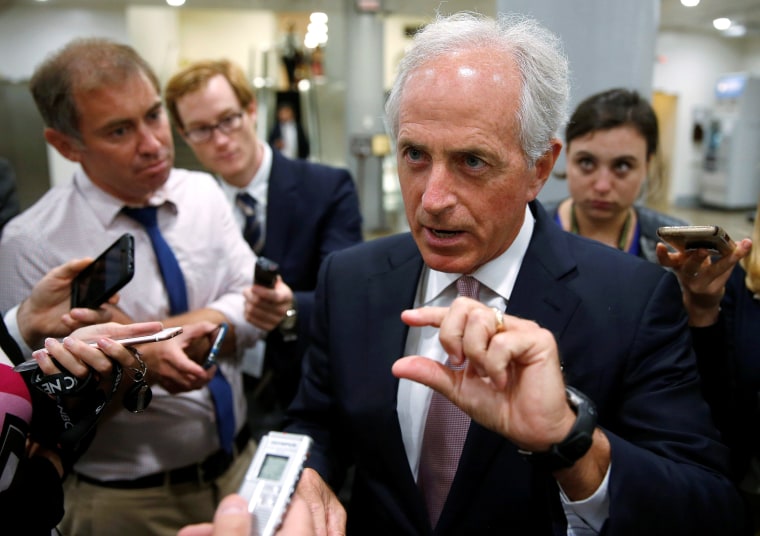WASHINGTON — The Senate easily passed a $15 billion disaster relief bill Thursday that would also keep the government open for an additional three months and lift the debt ceiling to keep the U.S. Treasury from defaulting
Despite misgivings by Republicans over the deal President Donald Trump cut with Democrats to add the extensions, the measure still passed the Senate on a vote of 80 to 17. It will now go back to the House where it is likely to pass before Trump is expected to sign it into law.
The updated version of the bill includes $7.4 billion for direct assistance for victims of Hurricane Harvey, $450 million for the Small Business Association to help small businesses get back on their feet and an additional $7.4 billion in Community Development Block Grants for all disaster in 2017. The added money could be used for Hurricane Irma or other natural disasters this year.
Republicans were left reeling Wednesday after Trump sided with Democrats on what a disaster aid package should look like. It gave Congress just a three-month reprieve on the debt limit, forcing Republicans to vote on the controversial measure twice.
Of the 17 Republicans who voted against the bill, all but Lindsey Graham of South Carolina represent states that are unlikely to be hit by a hurricane. Sen. Ted Cruz, R-Texas, who has never voted for an increase to the debt limit, voted yes because the bill included needed aid for his home state.
Sen. Joni Ernst, R-Iowa, said she voted against it because of the increase to the debt limit.
“Unfortunately a final deal was cut, and while it includes initial relief funding, it also raises the debt limit and kicks the can down the road once again on our overall government spending levels," Ernst said in a statement. "This is not the right way to legislate, and quite frankly, it is exactly what the American people are sick and tired of."
Sen. Rand Paul, R-Ky., was also opposed to the bill because it adds to the deficit, and he offered an amendment earlier Thursday that would offset the $15 billion in the bill with cuts elsewhere. It failed. And Sen. Ben Sasse, R-Neb., offered an amendment to vote on a “clean” Harvey relief bill — the same bill that the House passed overwhelmingly on Thursday — that only included disaster relief funding. It also failed.
As the measure heads back to the House, two key conservatives there have already said they won’t support the new package.
Rep. Mark Walker, R-N.C., chairman of the Republican Study Committee, wrote a letter to Speaker Paul Ryan announcing his opposition and offering suggestions on how to address the debt limit.
“The RSC Steering Committee opposes this proposal,” he said, referring to the leaders of the 150-member group of Republicans.
Another North Carolina Republican, Rep. Mark Meadows, chairman of the House Freedom Caucus, told NBC that he would not be voting for the measure either. It’s likely that his 30-member group of conservative members will follow suit.
CORRECTION (Sept. 7, 2017, 6:10 p.m.): An earlier version of this article misstated which North Carolina Republican named Mark is chairman of the House Freedom Caucus; it is Rep. Mark Meadows, not Rep. Mark Walter.

